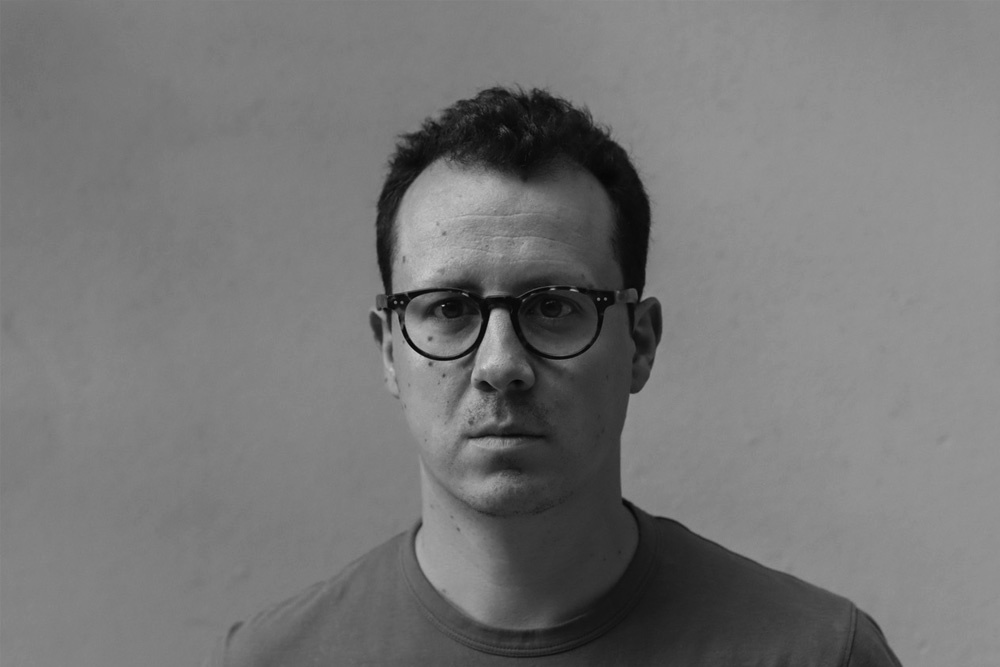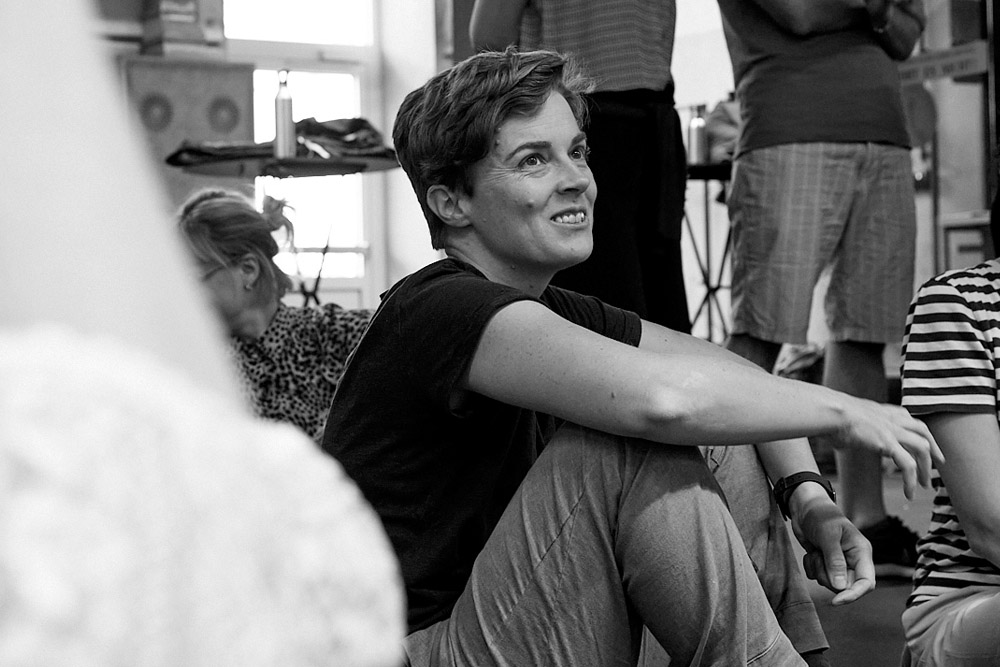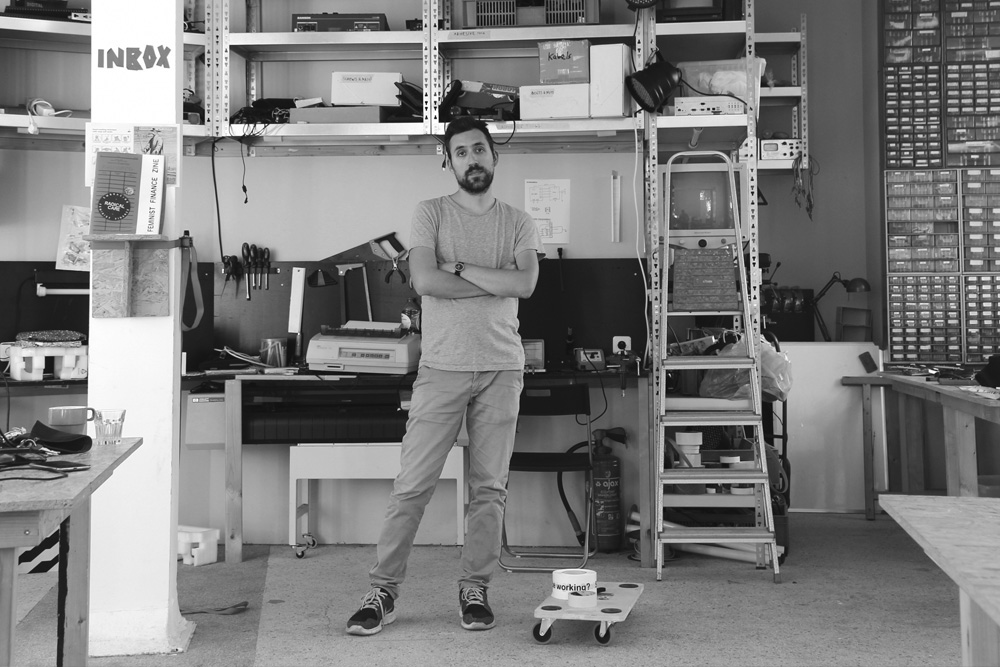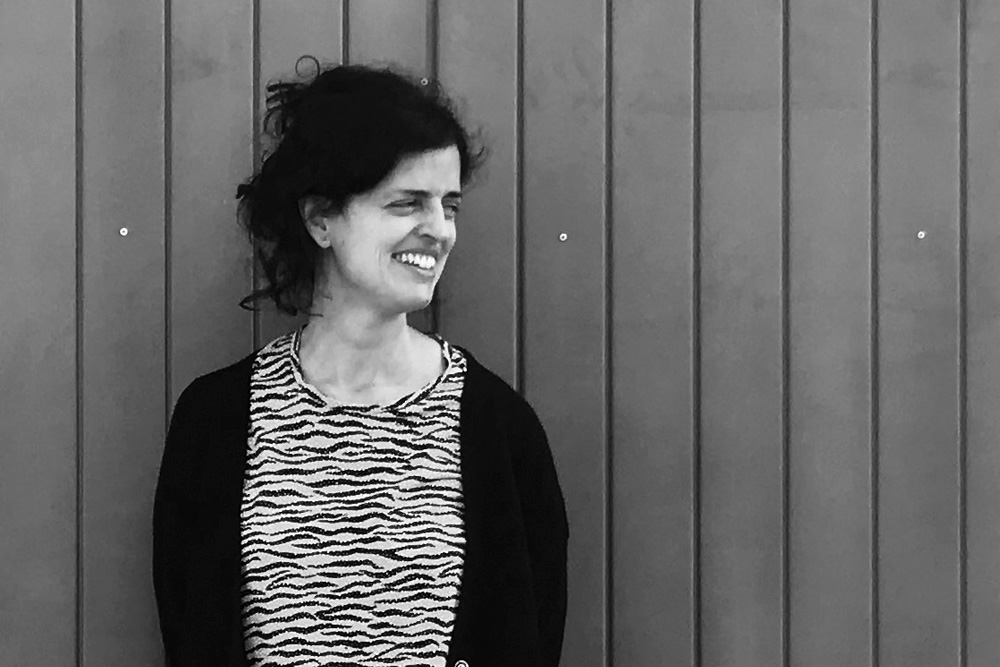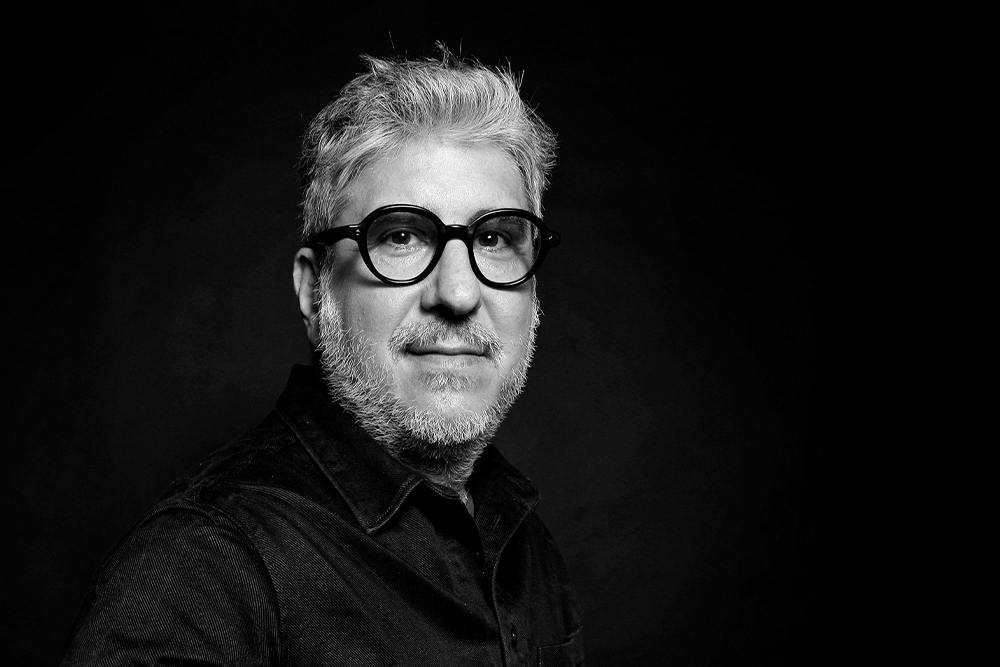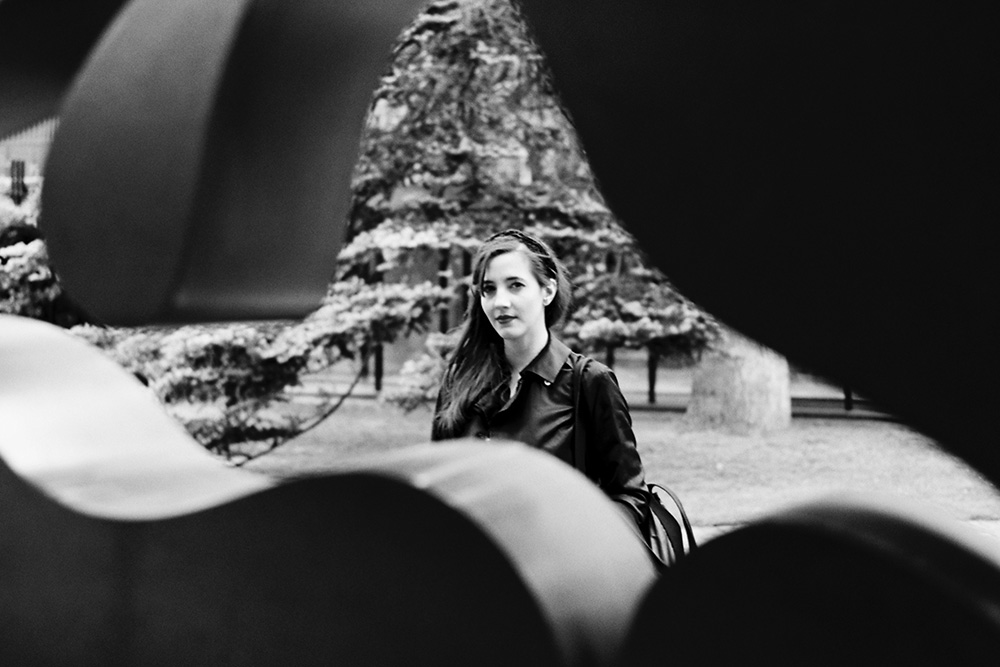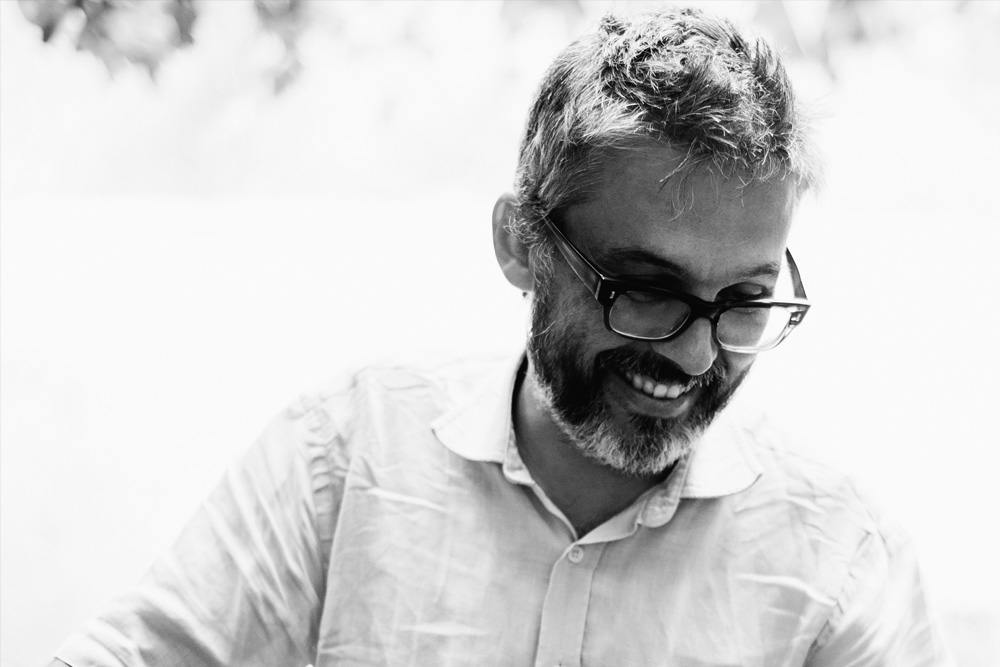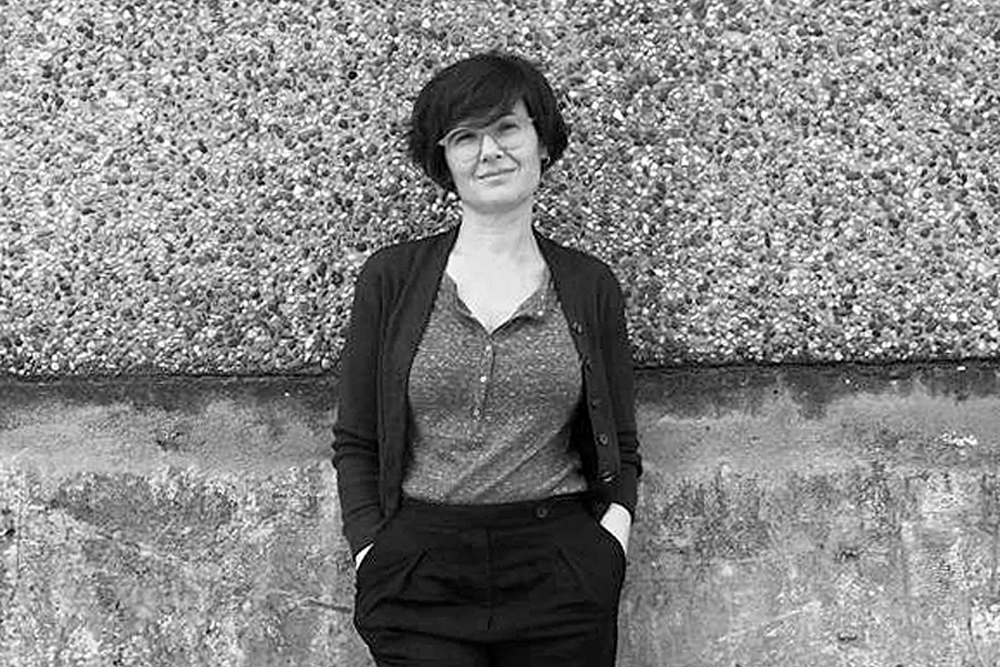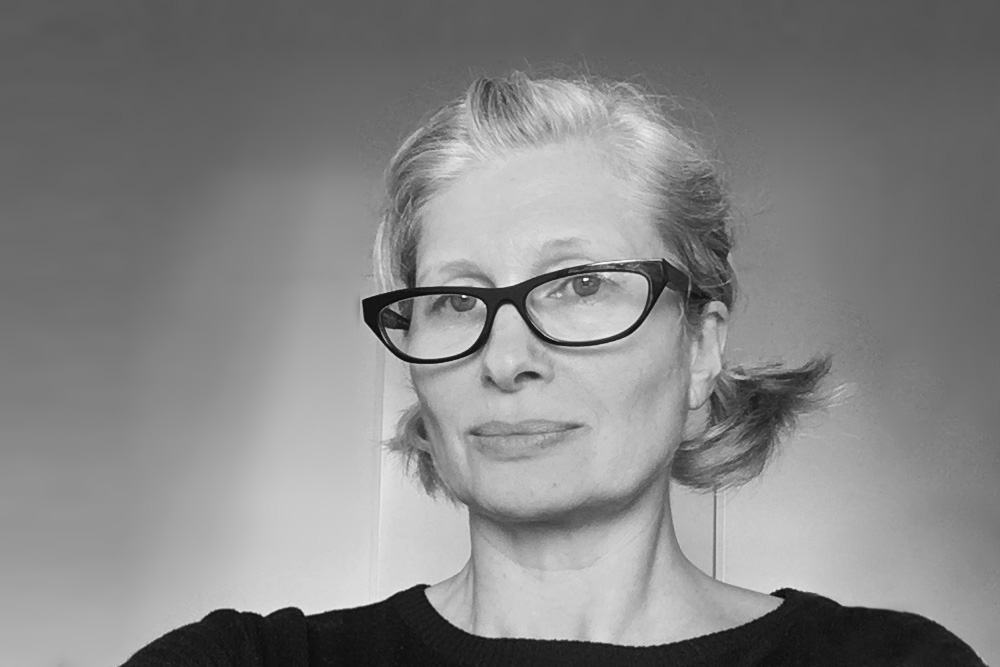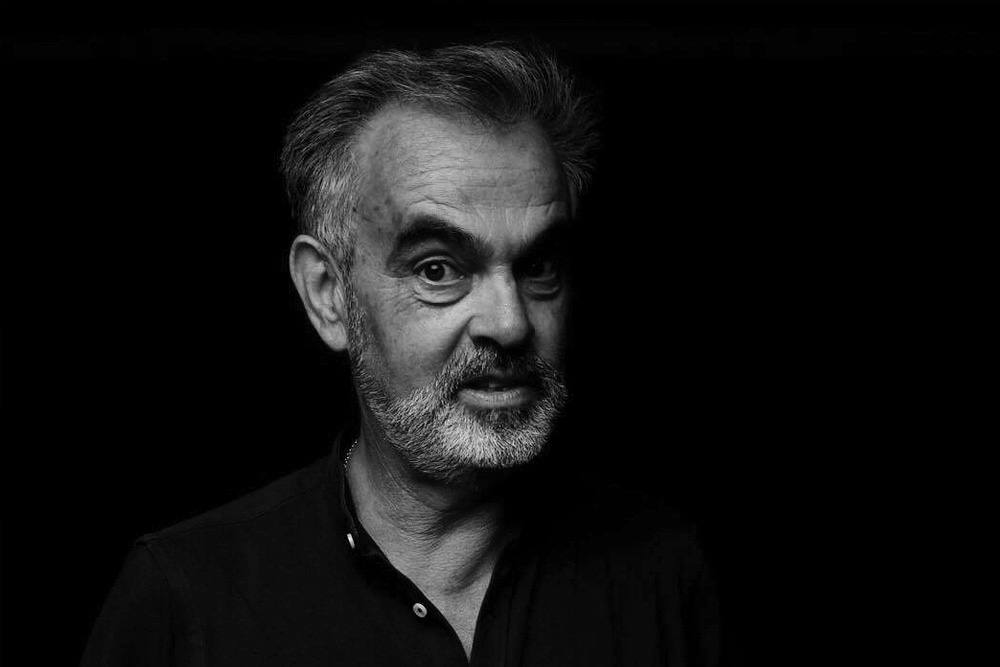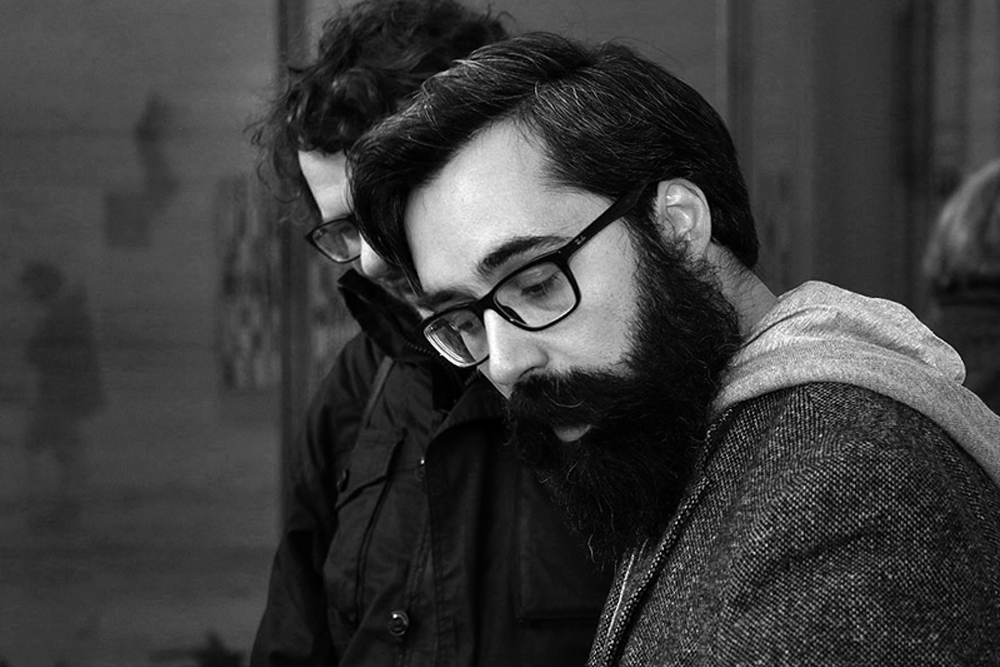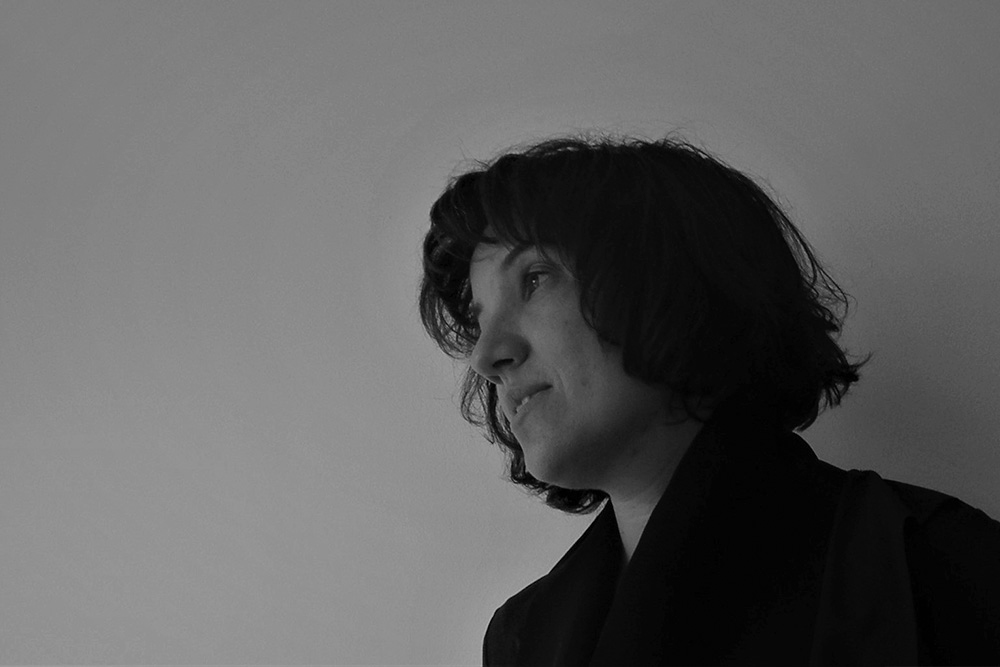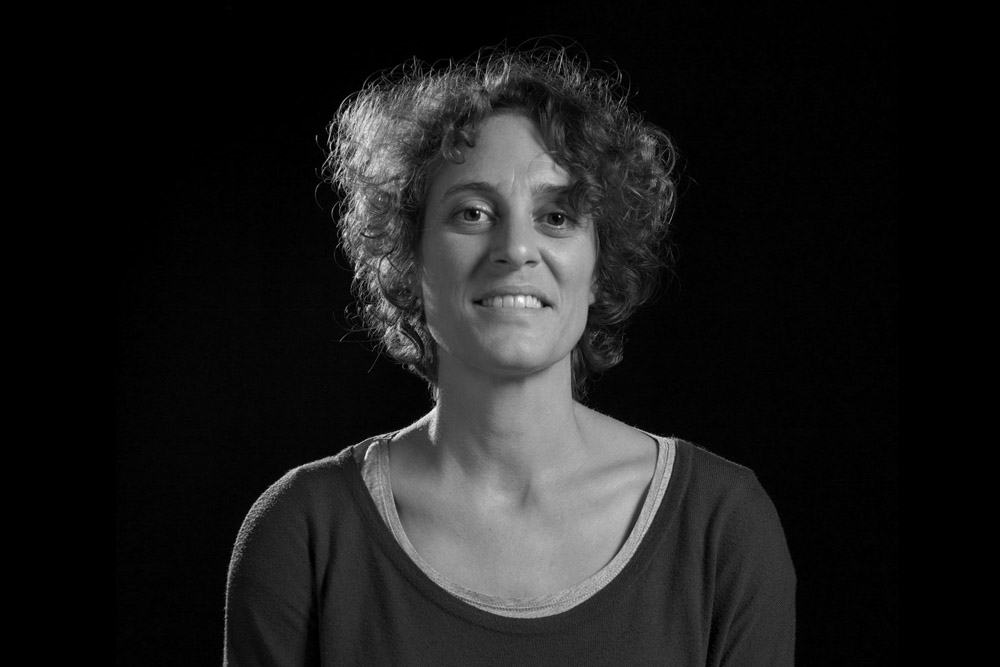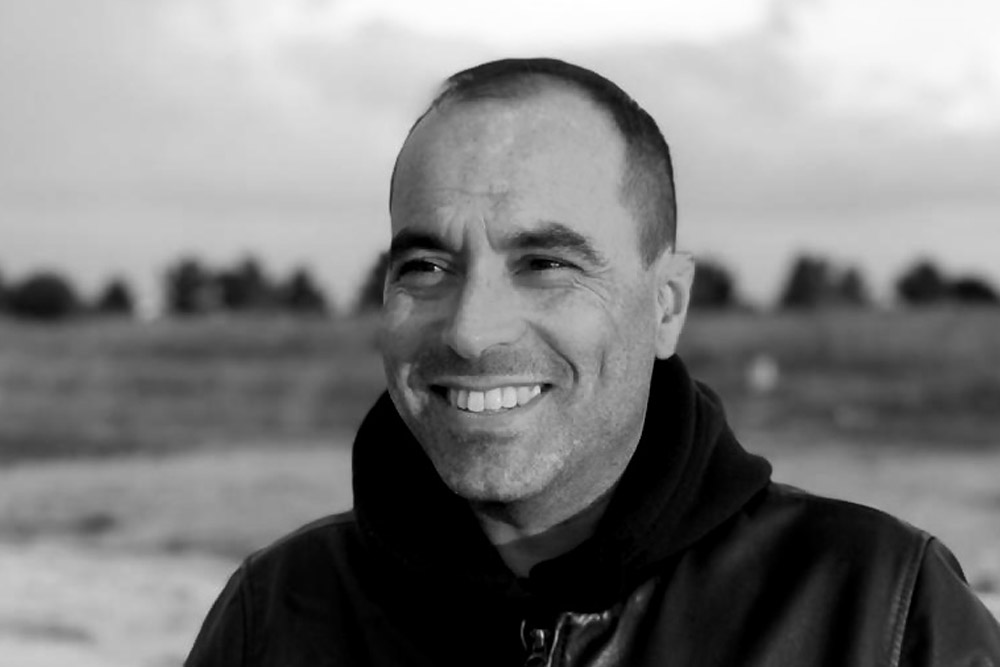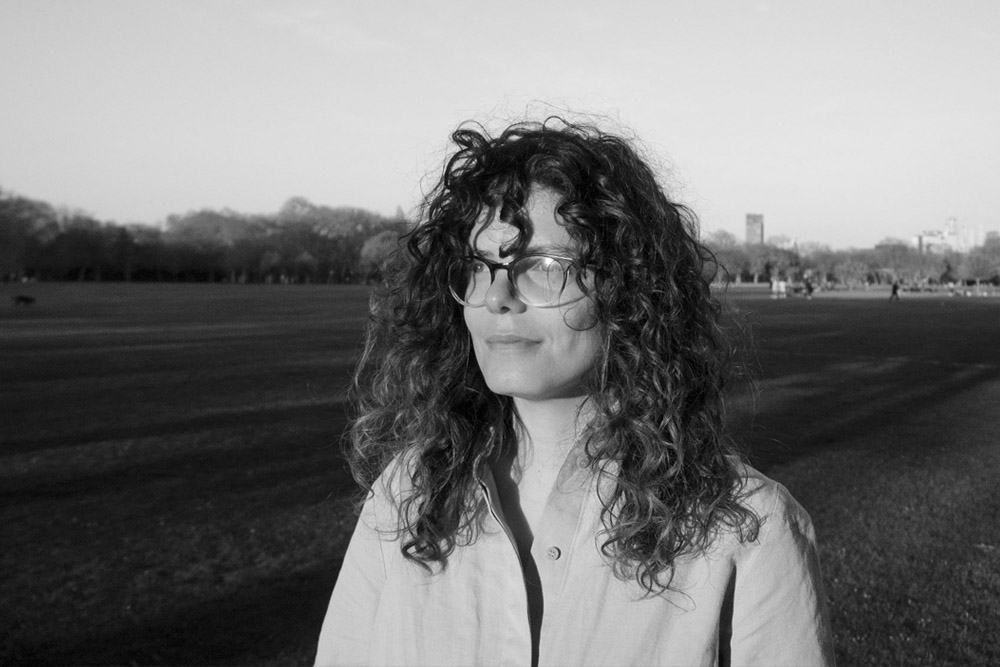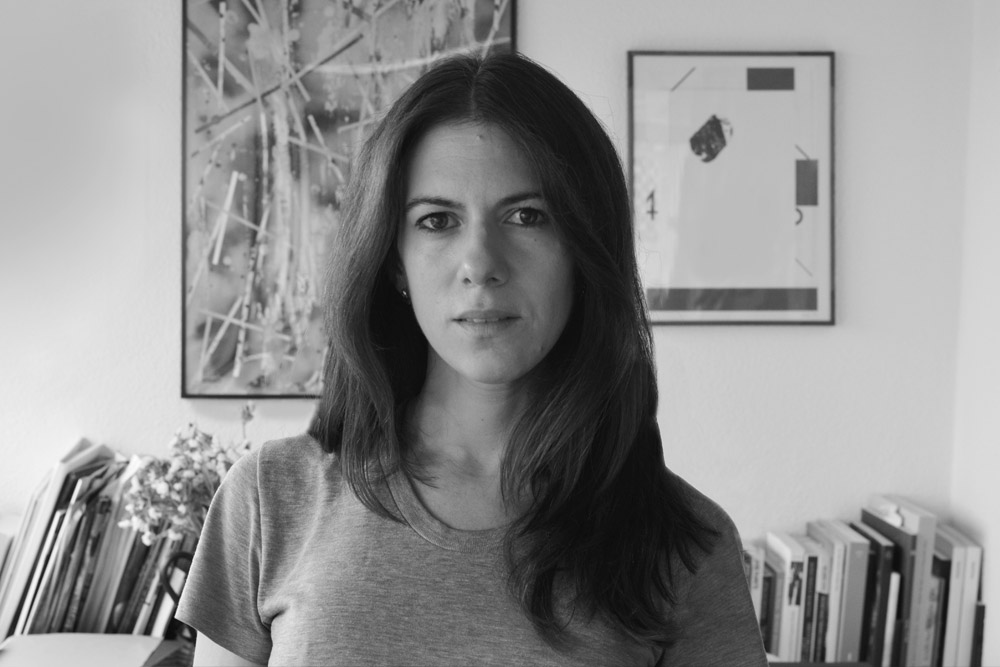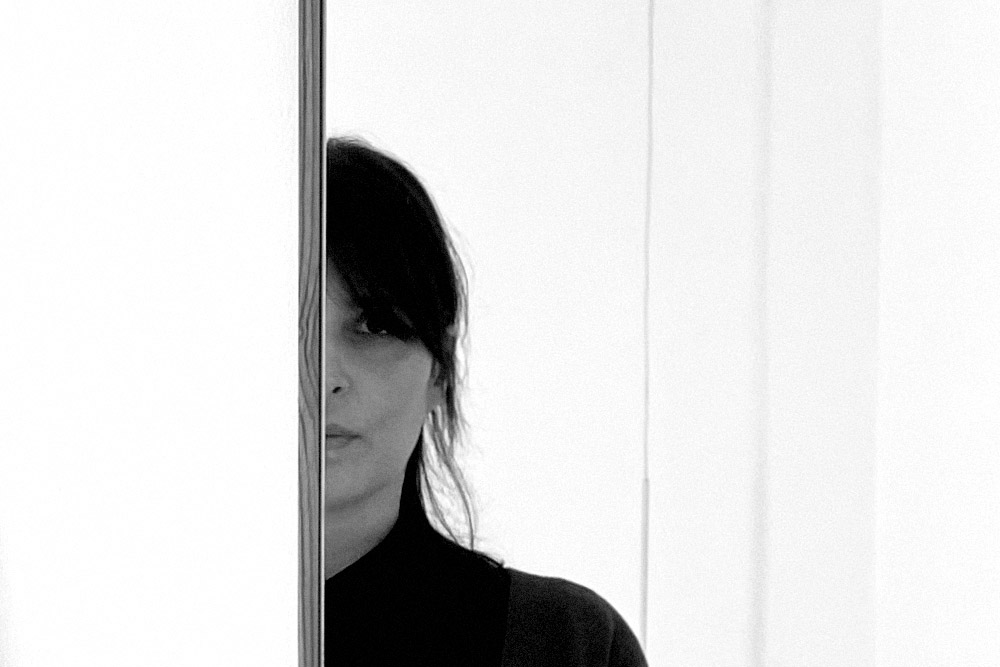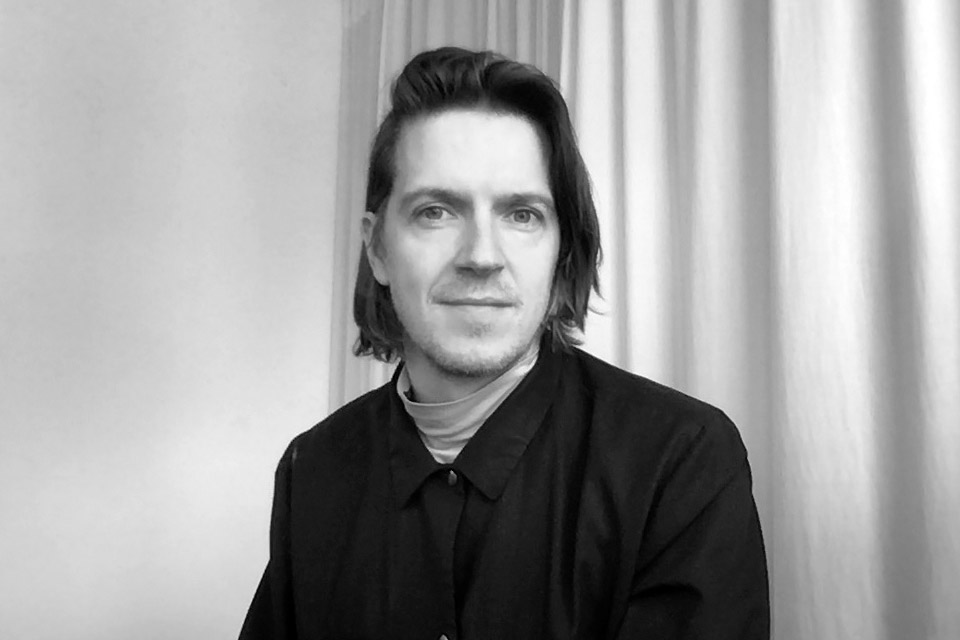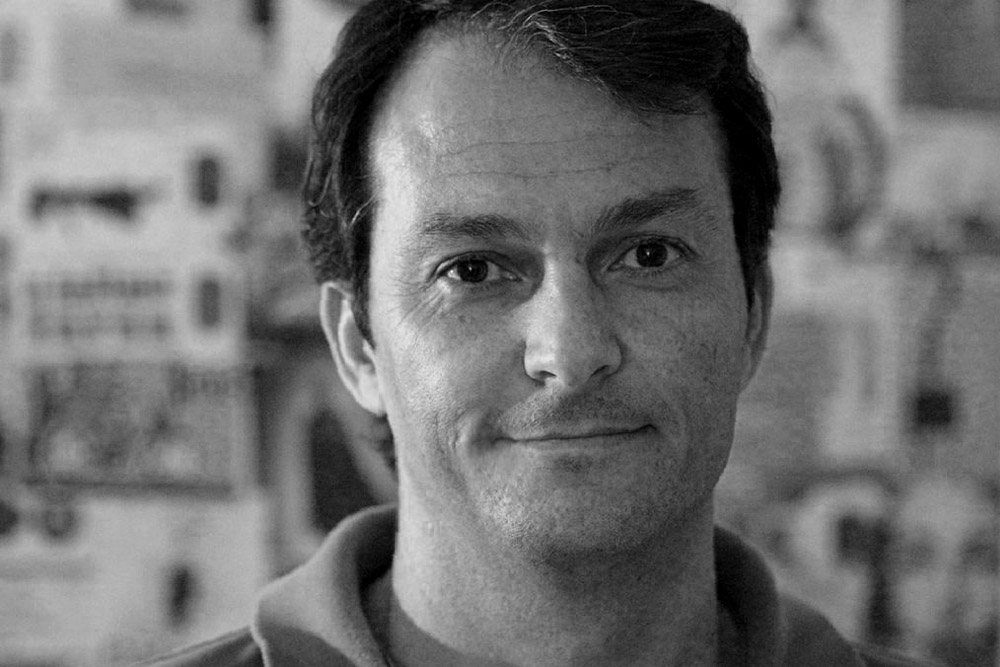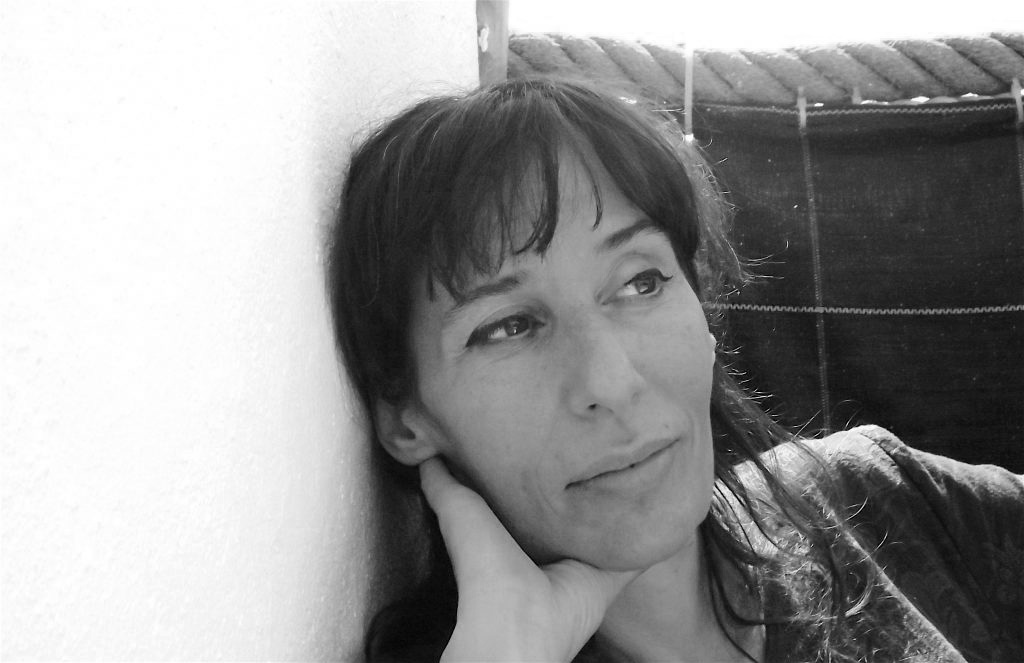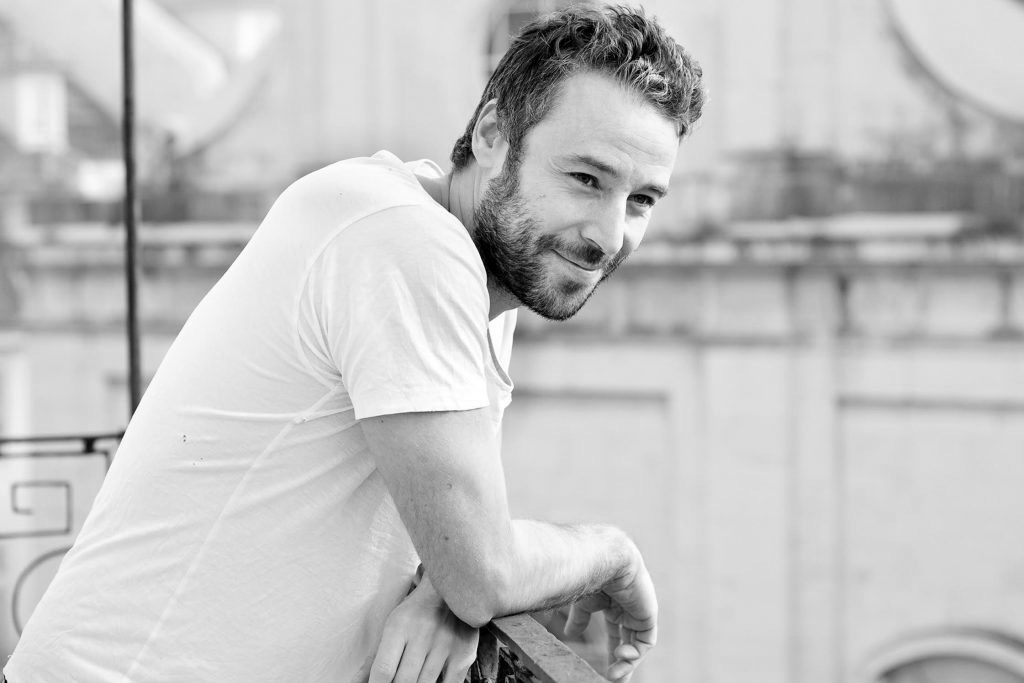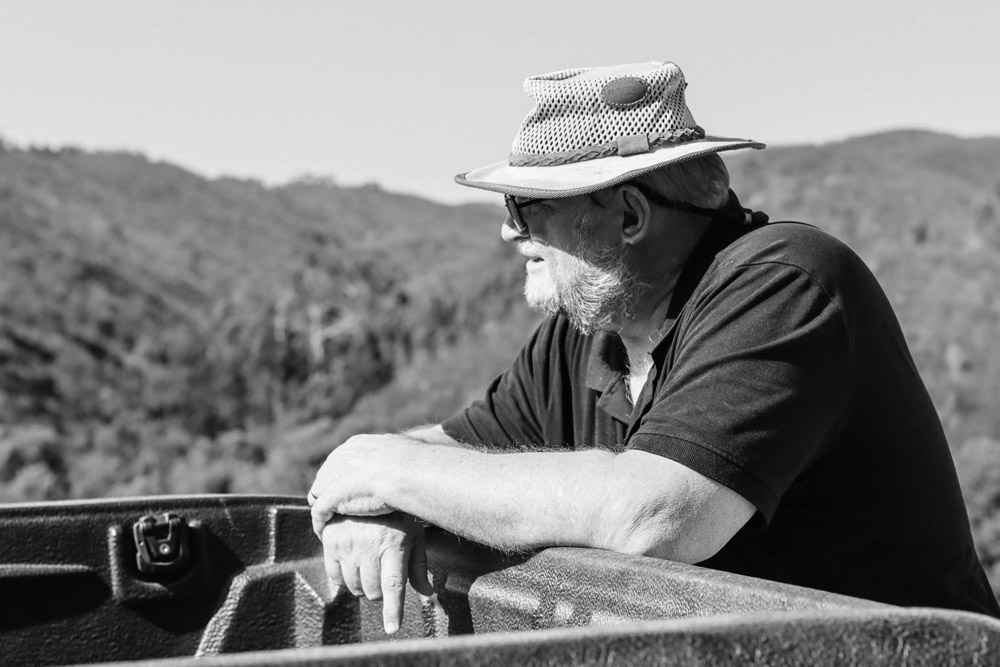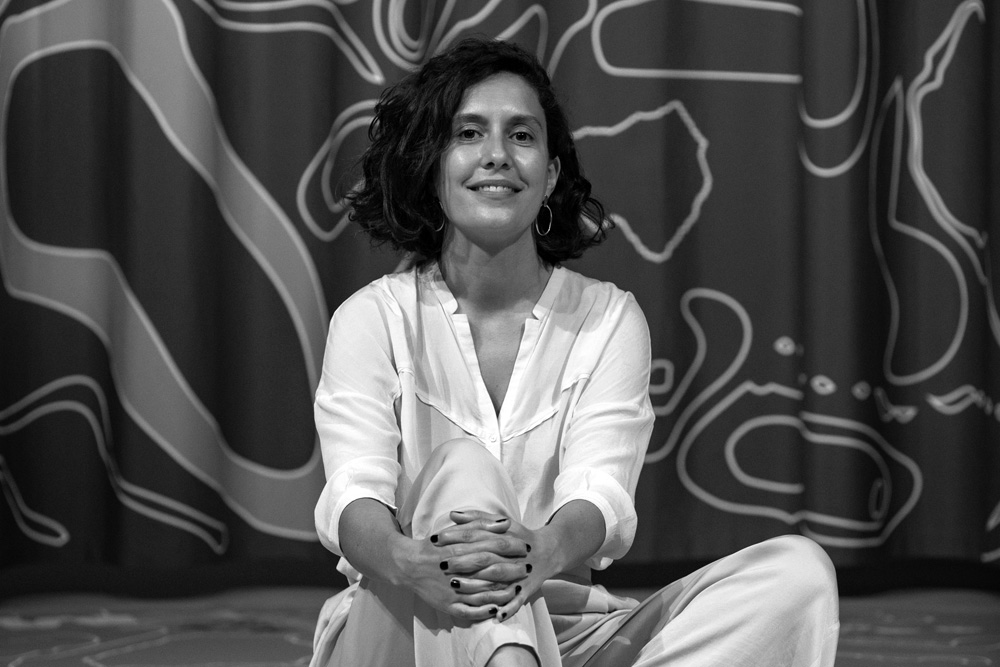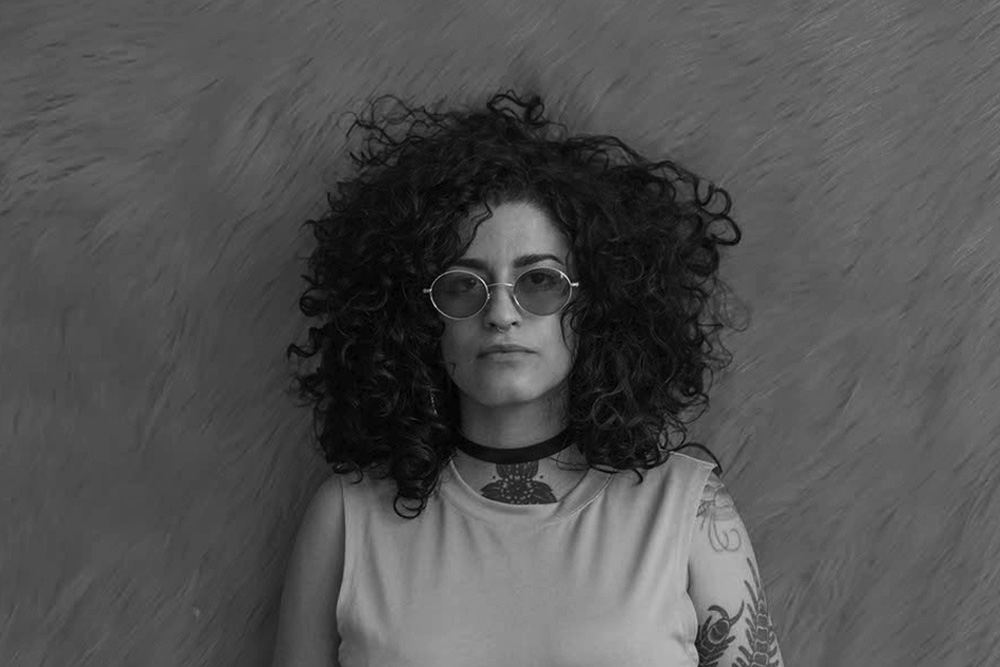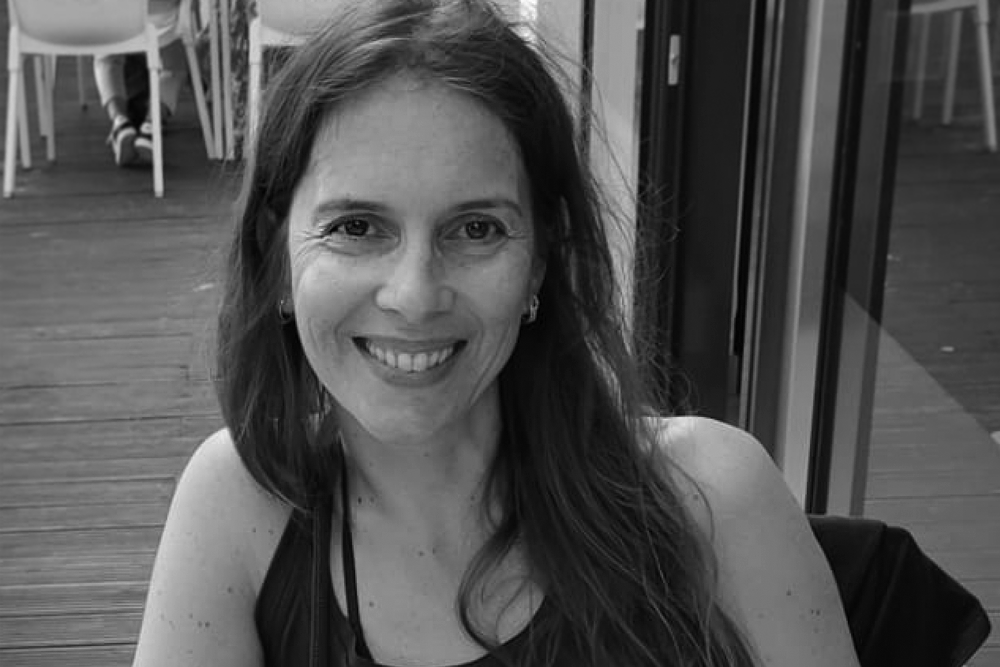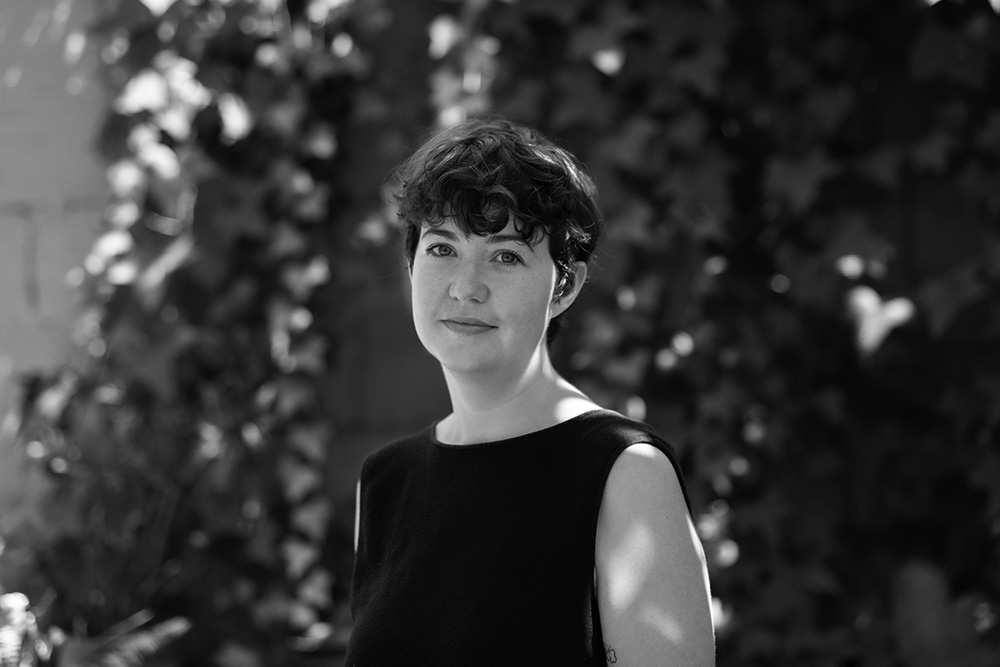Francisco Laranjo is a graphic designer and researcher. PhD in design methods and criticism from the University of the Arts London and an MA in Visual Communication from the Royal College of Art. His writings have been published on Design Observer, Eye, Creative Review, Grafik, Eye on Design, Público, among others. He has been a visiting and guest lecturer at the Sandberg Institute (NL), CalArts (US), Royal College of Art, London College of Communication (UK), Zürich University of the Arts, University of the Arts Bern (Switzerland) and speaker at the University of Applied Arts Vienna (Austria), University of South Australia (AUS), University of the Arts Split (Croatia), University of Porto, University of Lisbon (Portugal), among others. He is an Associate Lecturer at Central Saint Martins, editor of the journal Modes of Criticism, Co-director of the Shared Institute and Assistant Professor of Design at Lusófona University. Ciência Vitae
Bianca Elzenbaumer is a design researcher based in the Italian Alps. She completed her doctorate at Goldsmiths, University of London in 2014 with a research on precarious working conditions and on how to mobilise design to undo them. She holds an MA in Communication Art & Design from the Royal College of Art and an MA (1st level) in Mediation and International Peacebuilding from the University of Bologna. Elzenbaumer is a founding member of the design practice Brave New Alps and coordinates the Alpine Community Economies Lab, which she established between 2019-2021 during her Marie Sklodowska-Curie Individual Fellowship at Eurac Research (IT). Since summer 2021, she is also co-president of CIPRA International, an environmental NGO spanning the alpine arc and doing work at grassroots as well as at governmental level. Her 40-year research plan focuses on supporting and creating community economies and commons starting from the places she lives in. Ciência Vitae
Silvio Lorusso’s work focuses on the cultures and rhetorical regimes embedded in techno-social systems. His practice combines various media such as video, website, artist’s book, installation, lecture. This activity is further stimulated by writing essays, curating exhibitions and organizing public programs. In 2018 he published his first book entitled Entreprecariat. Silvio Lorusso is an assistant professor and vice-director of the Centre for Other Worlds at the Lusófona University in Lisbon, a creative coding tutor at the Royal Academy of Art in Den Haag and a lecturer at the Design Department of the Sandberg Institute. He is a member of Varia, the Center for Everyday Technology, as well as part of the editorial board of Italian graphic design magazine Progetto Grafico. Ciência Vitae
PhD in Design with a thesis addressing racial issues in Portuguese illustration from Estado Novo (University of Lisbon, funded by the Foundation for Science and Technology). MA in Visual Arts with dissertation crossing medieval Marginalia and contemporary graffiti (University of Évora). BA in Communication Design (University of Porto) with Erasmus Exchange at Willem de Kooning Academie, Rotterdam, NL. Teaches illustration, drawing and printing related subjects at Lusófona University and is an integrated member of COW – Center for Other Worlds, Lusófona University. Her main topics of interest and research include visual narratives, social and racial representations, medieval illumination and letterpress. Rita also practices as an illustrator/ graphic artist, participating as an author in multiple publications and events. Ciência Vitae
Graduate in Painting, PhD in Design. Lives and works in Lisbon, developing artistic and design work as well as editor/ publisher and educator. Since the second half of the 1990s, he has been developing projects that cross multiple disciplines: design, video, editing/publishing artist books and installation work. Professor in the undergraduate courses of Cinema, Photography and Animation Cinema at Lusófona University (Lisbon) until 2014. Professor in the MA Multimedia Design at the Architecture University of Coimbra (College of Arts) until September 2016. Creative director of the design studio Ideias; Art Director of LeYa publishing group (school area); owner and publisher of Stolen Books; chief editor and art director of CABIDE – The Live Magazine. Director of DELLI (Design Lusófona Lisboa); Director, BA & MA in Communication Design (Lisbon), at Lusófona University. Ciência Vitae
PhD in Visual Culture, Goldsmiths, University of London. Mafalda’s research investigates the intersections between culture, policy and international relations with a particular interest in the European Union. Currently, Mafalda is a Visiting Research Fellow in the Department of Culture, Media and Creative Industries at King’s College London and a Lecturer in the Institut Catholique de Paris. Additionally, she is a 2019–2021 Research Fellow with the Centre on Public Diplomacy of the University of Southern California. Previously, among other roles, she was Lecturer at King’s College London, Culture and Foreign Policy Expert at the German Institute of Foreign Cultural Relations, led with Cultural Action Europe a research project on the European status of artists and cultural workers for the European Parliament, and worked as expert for the Joint Research Centre of the European Commission.
António Silveira Gomes, Portugal. B.1971. South Africa. Studied Graphic Design (1991-92) in Johannesburg. Finished studying in Lisbon (1996) co-founded studio barbara says… (c.1997). PhD (2017) in Contemporary Art/Design Studies, currently lecturer at ESAD.CR, and guest lecturing. Works closely with cultural institutions, biennials, theatres, museums, galleries, filmmakers, publishers, artists and social innovators. Through professional and academic practice, as curator and research author, currently working in order to develop reflection concerning design practice and theory. Ciência Vitae
PhD in Design from the School of Architecture of the University of Lisbon and a degree in Communication Design-Graphic Art from the School of Fine Arts of the University of Porto. She is a full-time Assistant Professor in the Communication Design course at the School of Communication, Architecture, Arts and Information Technologies, at Lusofóna University of Humanities and Technologies, Lisbon. She received a scholarship from the Foundation for Science and Technology, within the scope of the research project with the doctoral thesis: “K” is cover: editorial design and postmodernism in Portugal in the early 90’s. She works independently as a graphic designer. Ciência Vitae
Natalie Woolf holds a PhD in Design Products from the Royal College of Art, and a BA in Fine Arts/Painting from Leeds Beckett University. She has 12 years independent design and applied arts practice, and 6 years experience in Public Arts practice and consultancy in urban and rural development. Since 2015 Natalie has taught drawing for Design and Animation Studies BA’s and Hybrid Spaces MA; is the Curator of the Drawing programmes for DELLI – Design Lusófona, Lisboa and is an integrated member of COW – Centre for Other Worlds, Lusófona University. Main topics of research interest: material responsiveness to human presence and spatially distributed drawing. She is particularly interested in combining still and moving image and how that is mediated by and/or delivered through technologies. Natalie is active in academic research, participating as an author in publications and events and maintains her own creative practice at Atelier Concorde, Lisbon. Ciência Vitae
PhD in Design from IADE – Creative University, Master in Industrial Design from Scuola Politecnica di Design in Milan, Degree in Industrial Design from IADE – Institute of Visual Arts, Design and Marketing. Director of the Master in Design, and Researcher at COW – Center for Other Worlds, ULHT – Lusófona University of Humanities and Technologies. Visiting Professor at Politecnico di Milano, Italy; Università IUAV di Venezia, Italy; Federal University of Santa Catarina, Brazil; Faculdade Nordeste (FANOR), Brazil; Pontifical Catholic University of Rio de Janeiro, Brazil; Chiba University, Japan; East China Normal University, Shanghai, China. Founder, CEO and creative director of Modus Design, Portugal. Conference Participation in international iniversities, business associations, technological centers in Portugal, Italy, Spain, Brazil, Angola, Japan, and China. Artist-photographer, with research about images as fundamental vehicles in the functioning of societies. Ciência Vitae
Hugo Barata is a visual artist, curator, and educator focused on critical anarchives and crypto-archives, as well as methodological approaches between art practice, curating and education. He has been exploring the concept of constellation to develop creative strategies in the fields of practice-based artistic research, the curatorial as a research-driven collaborative practice and informal methodologies for an inclusive education. PhD in Media Arts from ULHT, with a dissertation about the Archive and Contemporary Art. Recently curated exhibitions include Constellations I/II (CCB, MCB, Lisbon, 2019), Constellations III (CCB, MCB, Lisbon, 2020), In the Cohoorte of De Chirico (Arts College, Coimbra, 2021). He has worked as guest artist and education curator in institutions such as MAAT – Museum of Art, Architecture and Technology, Calouste Gulbenkian Foundation, CCB/Berardo Collection Museum, Lisbon City Hall – Municipal Direction of Culture and EGEAC, developing different social intervention projects and also formation courses. Ciência Vitae
Inês Andrade Marques (PhD Public Art) is a visual artist, Assistant Professor, and integrated member of the research center in design & art – Center for Other Worlds (ULHT). She has developed several public art projects with students since 2013, as well as interdisciplinary projects that blur the boundaries between artistic disciplines. As a researcher, she has focused on contemporary public art, and pedagogy in visual arts. She is a founding member and integrates the Coordination Council of Rede 3iAP (2019-2021) – Information, Research, and Intervention in Public Art Network, CITAR – Universidade Católica Portuguesa. She is a member of the Scientific Committee of the International Congress CSO – Criadores Sobre Outras Obras, School of Fine Arts – University of Lisbon, and is an external academic peer of the art journals Gama, Croma and Estudio, School of Fine Arts – University of Lisbon. Ciência Vitae
Soraya Vasconcelos is a visual artist, lecturer and researcher. PhD in Communication, Culture and Arts (UAlgarve). Apart from teaching, she is involved in various projects connected to photography and art, namely Photo Impulse (ICNOVA) for which she was full-time researcher from 2019-2022, focusing on a critical, decolonial analysis of the photographic and film archives produced in the context of Portuguese colonial science, of their visual, political and communicative affordances; and ATLAS of Photobooks in Portugal that aims to create a digital platform, including podcasts and other original contents and a database of Portuguese photobooks published in the last two decades. She collaborated with Propeller Magazine, an editorial project by Hélice, a photographers’ collective in Lisbon; and co-proposed and co-coordinated the collective and interdisciplinary project Estação Vernadsky (Sines/Lisbon 2017-18). Her artistic practice includes photography, drawing, book and printmaking and installation; she has become increasingly interested in the intersections between fields through collaborative and interdisciplinary methods. Ciência Vitae
Orlando Franco is a visual artist, independent curator, teacher and educator based in Lisbon. PhD in Media Art, Lusófona University. His doctoral work explored the theme of curatorship understood as an artistic act. Assistant Professor, Cinema and Media Arts Department, Lusófona University, Guest Professor at ESAD.CR and Co-director of the Master in Photography. His artistic work explores video, image, installation and drawing. His research seeks to expand and amplify ideas and concepts such as tension and suspension, weight and lightness, achievement and frustration. Postgraduate in Art Theory at Faculty of Fine Arts, Lisbon University. Degree in Fine Arts at ESAD.CR, Erasmus Scholarship, School of Fine Arts of Salamanca, Spain. Exhibits regularly since 1999. Recent exhibitions include Notes on Empathy and Otherness (Centro Cultural de Lagos), AWARE (BAG – Banco das Artes Galeria, Leiria), The Eyes Are Not Here (Trem Gallery, Faro), and WAIT (Berardo Collection Museum, Lisbon). Ciência Vitae
Isabel Duarte
Isabel Lucena
Marta Belo
Paul Bailey
Isabel Duarte is a PhD candidate at the University of Brighton and a graphic designer. Her current research engages with the intersections of graphic design history, feminist methodologies and decolonial studies of cultural production, with a focus on Portuguese graphic design history and Portuguese social context. In 2021 co-curated the exhibition Errata: a feminist revision of Portuguese graphic design history. In parallel develops the Errata podcast documenting and reflecting on issues facing women designers in Portugal through conversations with thinkers, curators, historians and designers, about their experiences and work. As a graphic designer, Isabel has worked mainly in editorial projects such as ArtReview and ArtReview Asia, Eye Magazine amongst other projects mainly for cultural clients. Ciência Vitae
Isabel Lucena is a graphic designer and researcher. MA in Communication and Design from the Sandberg Institute (NL) and BA in Communication Design (IADE) with Erasmus Exchange at the Universität für Angewandte Kunst of Vienna (Austria). She is currently a PhD student in Communication and Media Arts at Lusófona University, Lisbon. Her main research interests include the status of images in contemporary culture, their global circulation, and image representation techniques. She teaches graphic design and printing techniques subjects at the Communication Design Programme (Design Lusófona Lisboa). Since 2010 Isabel has maintained her practice as an independent graphic designer, working with several cultural institutions, museums, galleries, artists, and publishers.
Graphic designer and researcher based in Lisbon. Graduated in Education, studied illustration at Ar.Co, and investigated the concept of the Designer as Player in her MA project in Graphic Design at ESAD.CR School of Arts and Design Caldas da Rainha. She works predominantly in commissioned and self-initiated projects in book and editorial design, identity design, visual arts and design research. Marta is also interested in speculative visual research and learning through exploratory projects that allow her to investigate the intersection of design with other fields of knowledge, especially art, science and pedagogy. She is currently developing a PhD research in design about alternative design pedagogies and play at the University of Lisbon, funded by the Foundation for Science and Technology. Lecturer at the Design Department of Lusófona University. Ciência Vitae
Paul Bailey is an Irish graphic designer, researcher and educator based in London (UK), exploring a practice that is made public through exhibitions, publications, performances, workshops, writing and curation. He directed the MA Graphic Media Design at London College of Communication, UAL (2014-22), was a founding member of the Graphic Design Educators’ Network (2015-2021); and an advisor at the Jan van Eyck Academie (2015-18). He has been an invited presenter, critic, jury member and examiner at Architectural Association, Central Saint Martins, Royal College of Arts (UK); Icelandic Academy of the Arts (IS); National College of Art & Design (IE). His practice has been awarded, exhibited and published internationally. He is a fellow of fellow Higher Education Academy (UK) and a member of various editorial boards. He is presently pursuing a PhD in the Arts at KASK School of Arts (BE) and leading an independent design-research studio. Ciência Vitae
Alice Bernardo
André Tavares
Cláudia Lima
Ece Canli
Filipe Luz
Gemma Copeland
Justin Roborg-Söndergaard
Lisa Surwillo
Luiza Prado
Marco Balesteros
Mariana Pestana
Nuno Coelho
PhD in Communication Sciences, Director of the BA Videogames and Vice-chair of the BA Communication Design at Lusófona University. Lecturer in digital post-production for film, television, games and animation, also developing research in communication sciences, design and arts. His work at Hei-Lab (Digital Human-Environment Interaction Lab) and MovLab (Laboratory o Interactions and Interfaces), where he integrates technologies such a Motion Capture, Animation, VR or Stereoscopic Photography, is an example of the cross-media projects that involve academic and professional work for the entertainment, design or communication sectors.
Conservator-restorer of Graphic Documents. PhD from the Art History Department of FCSH-UNL, with the support of FCT, with research on the archeology of illuminated manuscripts from the Monastery of Lorvão. Conservation of manuscripts and historical bindings in the National Archive of Torre do Tombo (1997–2018). Taught the course Preservation and Conservation of Information and Documentation at FCSH-UNL (2012–16), with notable projects in India with the support of the Oriente Foundation, in Egypt at the service of the Levantine Foundation, at the Coptic Library of Seir al-Surian; for Unesco, in the preparation of the Dossier for the current nomination of the Apocalypse of Lorvão (1189) the Memory of the World. She is the commissioner of the exploratory project LivrObjecto – Anatomy and Architecture. Coordinator of the Conservation Area of MUDE – Museum of Design and Fashion, and Guest Lecturer at Delli at Lusófona University. Represents Portugal at the European Research Center for Book and Paper Conservation-Restoration.
Marco Balesteros explores the book as expanded territory and performative space, which he began researching as part of the MA programme at the Werkplaats Typografie (NL) and Jan Van Eyck Academy (NL), where he developed the project SALA LIVR(E)O. In his practice he investigates the artist book, the essay book and the book as staged territory. Balesteros explores this possibility through his collaboration with dancer and choreographer Sara Vaz in the project LIVRO-CARACTERE. He is the founder of studio LETRA, where he produces projects in a close dialogue with visual artists, photographers, dancers, curators, publishers, galleries and others. Balesteros develops pedagogical models parallel to the academic space in which he explores publishing as a collaborative model and a form of public action. He has developed several workshops on self-publishing: Samizadt and Portable School (FBAUL, Lisbon); Mus(a)eu(m) (Serralves, Porto); LOW high (Madrid); Hard-Edit (Bucharest); Second Circulation (Darmstadt), Portable School—A lesson in Politics (Sofia), De-School-ing ENSBA Lyon, among others. Lecturer on the BA Communication Design at Lusófona University, and Guest Lecturer on the MA Graphic Design at ESAD.CR.
Justin is a South African field ecologist and nature conservationist. He has a master’s degree from London University and is a PhD candidate at the Nova University School of Science and Technology on the restoration of Natura 2000 habitats. Apart from his studies, Justin also consults on numerous ecological projects in Portugal which are focused on recovering damaged, degraded, and destroyed ecosystems where he employs GIS and ‘drone’ based technologies for unmanned aerial surveys, along with his experience as a field-based practitioner. He is a member of the Society for Ecological Restoration (SER) international as well as the SER European chapter. Before coming to Portugal, he worked in a community based natural resource management (CBNRM) project in Niassa, Mozambique for over 10 years – it was here that he met Sofia, his Portuguese wife. Before Mozambique, he worked in the Kruger National Park, as well as other South African National Parks, including various ecological restoration and CBNRM projects throughout southern Africa.
Mariana Pestana is an architect, researcher and independent curator, exploring critical, social and fictional dimensions of design for an age marked by technological progress and an ecological crisis. Since 2010, she is co-director of The Decorators, an interdisciplinary studio that makes collaborative cultural programmes with the aim to expand notions of place, community and commensality. She holds a PhD in Architectural Design from the Bartlett School of Architecture. In 2018, Mariana co-curated The Future Starts Here (Victoria and Albert Museum) and in 2019 she co-curated Eco Visionários: Arte e Arquitectura Depois do Antropoceno (MAAT, Lisbon, Matadero, Madrid e Royal Academy, London) and edited Fiction Practice: Prototyping the Otherworldly (Onomatopee). Currently, she is the curator of the 5th Istanbul Design Biennial (2020-21) and works as Assistant Professor of Design at Lusófona University. Ciência Vitae
Luiza Prado de O. Martins is an artist, writer, and researcher whose work examines themes around fertility, reproduction, coloniality, gender, and race. Her ongoing artistic research project, A Topography of Excesses, looks into encounters between human and plant beings within the context of herbalist reproductive medicine, approaching these practices as expressions of radical care. Since 2019, she has broadened the scope of this research, developing a body of work that offers a critique of the racist concept of ‘overpopulation’ in the context of the current climate crisis with the project The Councils of the Pluriversal: Affective Temporalities of Reproduction and the Climate Crisis. She is part of the curatorial board of transmediale 2021 and a founding member of Decolonising Design. She is currently based in Berlin, Germany. Ciência Vitae
PhD in Digital Media (University of Porto). Design lecturer at Lusófona University; School of Fine Arts, University of Porto; and ESAP. Her research is focused on the recovery of community stories and local art and design stories through biographical testimonies and visual analysis, with FCT funded projects such as: An Infodemic of Disorientation; Echoing the Communal Self; Wisdom Transfer (under which she developed a post-doc project on the first pedagogical practices of Design at the School of Fine Arts of Porto). She is currently coordinating the research REMIND: Design for People with Dementia, in which pedagogical practices are being developed in partnership with Alzheimer Portugal. She has coordinated national and international events including conferences, symposia, seminars, exhibitions and workshops; and developed pedagogical projects in partnership with museums including Tate Modern, Soares dos Reis National Museum and the WOW Museum focusing on the interpretation of works of art from past generations through digital media. Ciência Vitae
Gemma Copeland is a designer and researcher. Her work centres on developing new models for living and working collaboratively, building communities, and imagining post-growth futures. She is a member of Common Knowledge, a not-for-profit worker cooperative that works with political organisations on their digital strategy. She supports these groups by designing digital tools and identities, conducting research, providing strategic advice and facilitating workshops. Previously, she helped organise groups like the United Voices of the World’s Designers & Cultural Workers branch and the design collective Evening Class. She has worked at design studios in the UK, The Netherlands and Australia, mainly on projects within the cultural sector. She has done talks and workshops at University of Cambridge, Central St Martins, London College of Communication, Kingston School of Art, Rhode Island School of Design and Parsons School of Design. She is currently based in Lisbon, Portugal.

